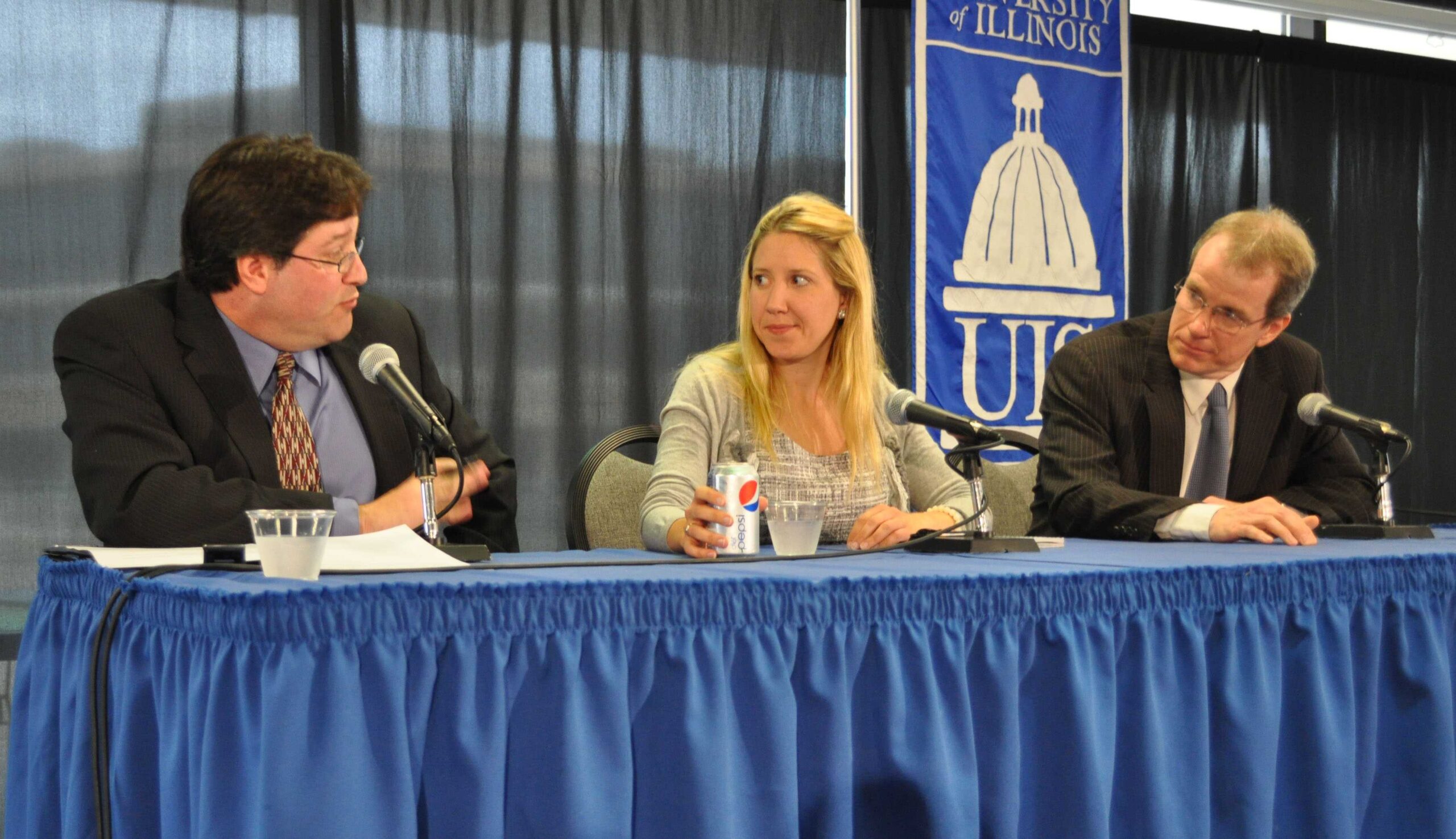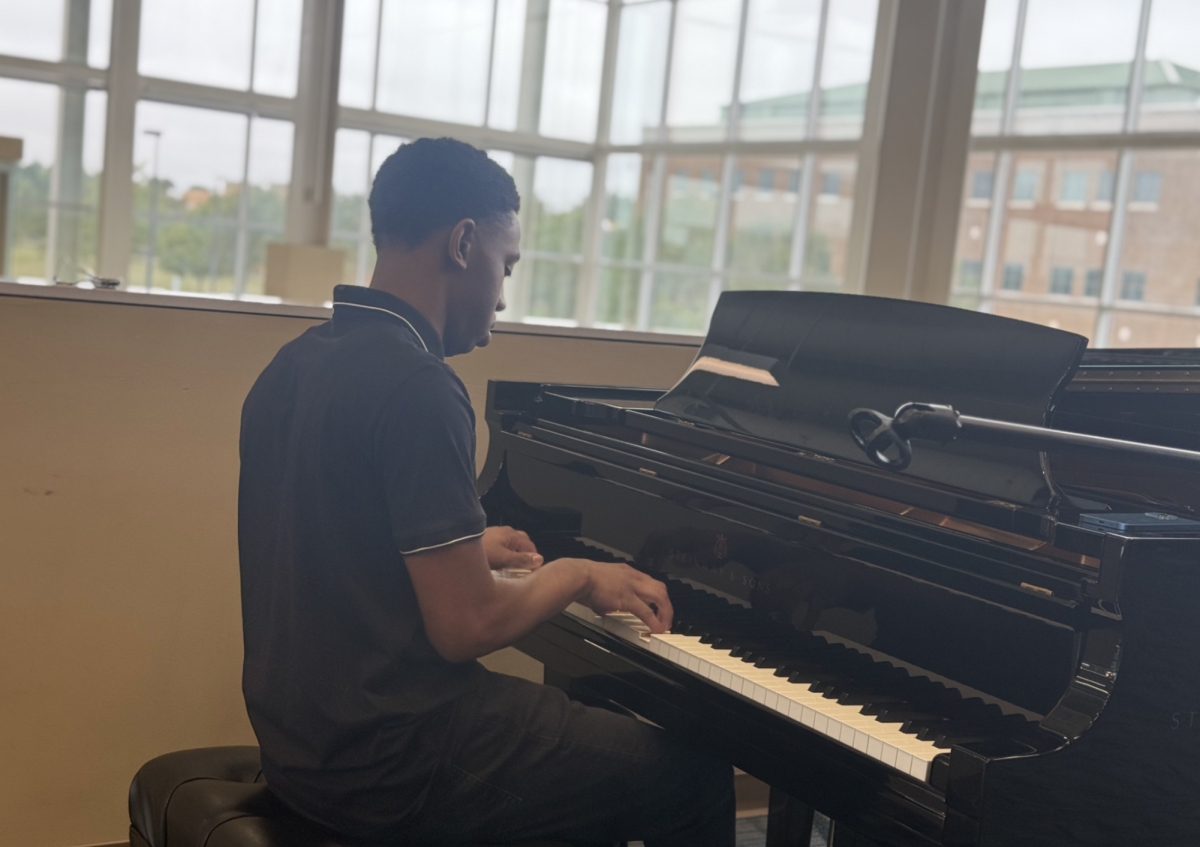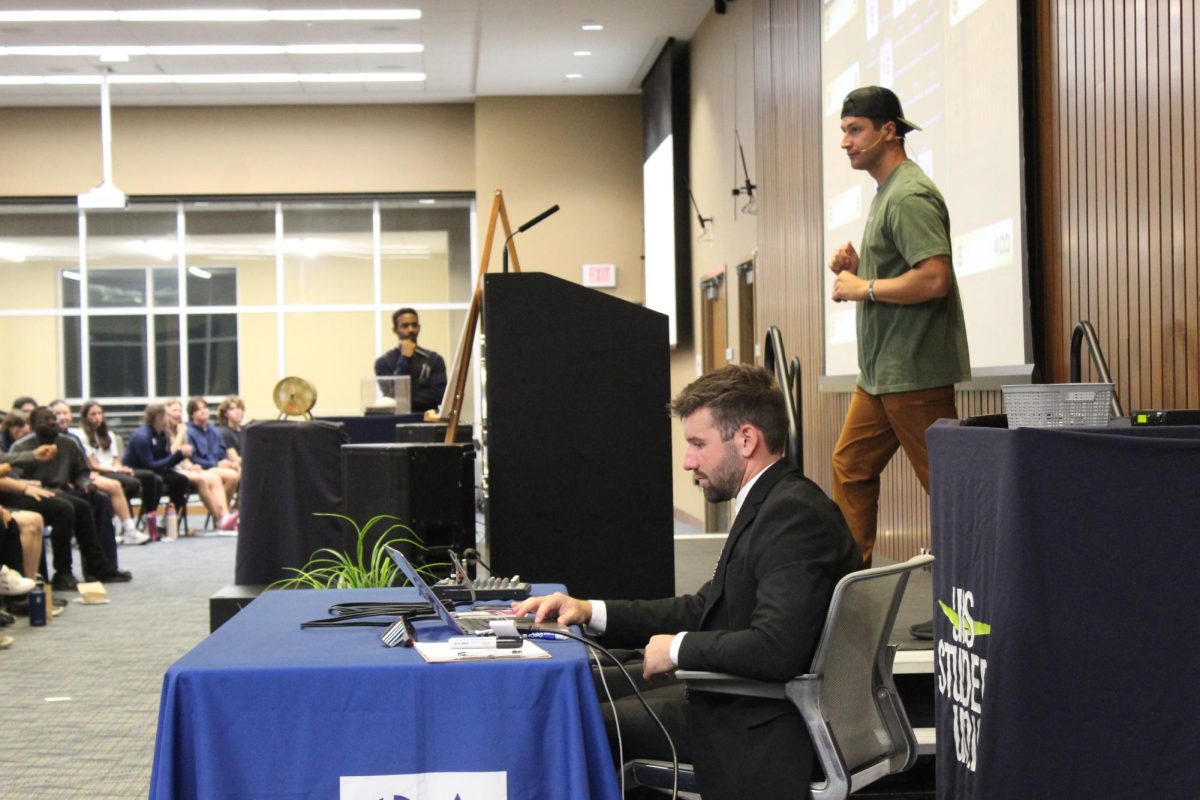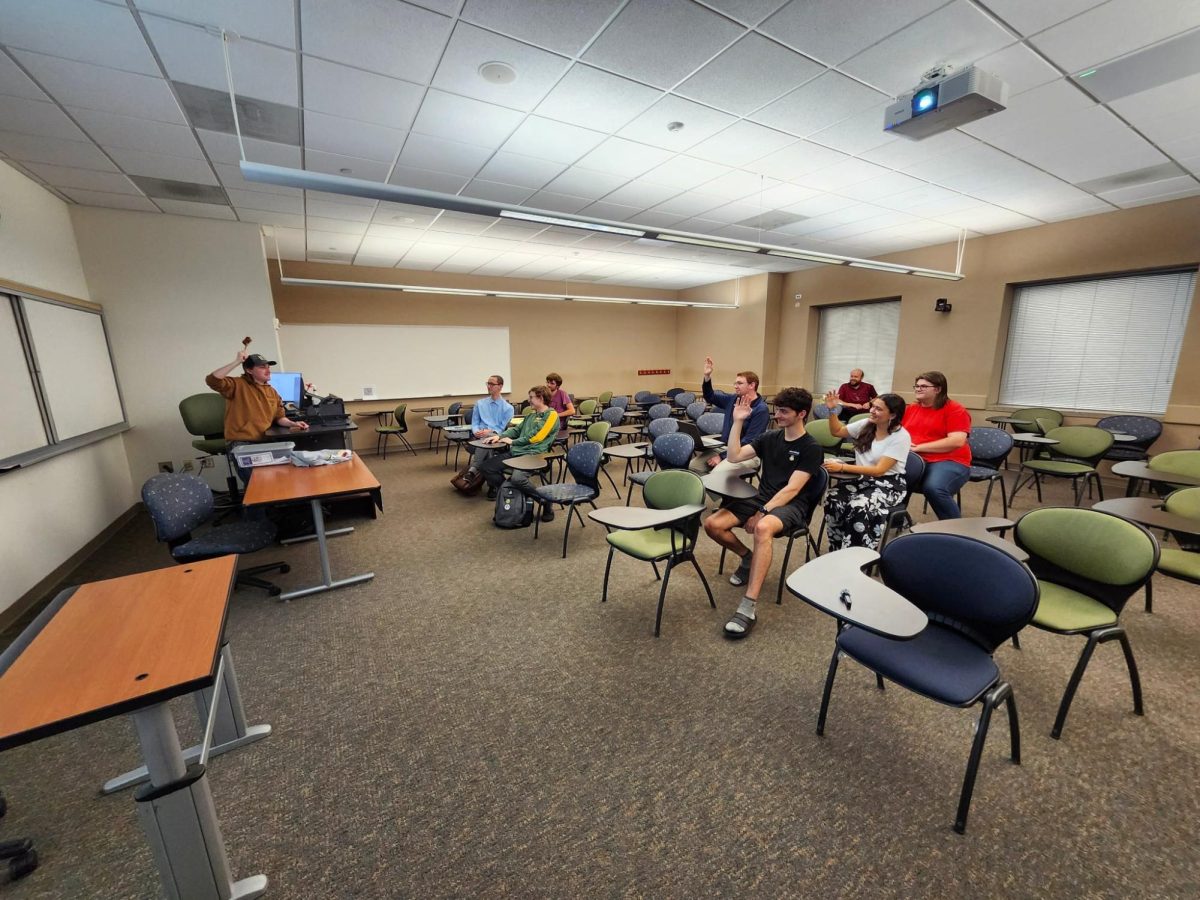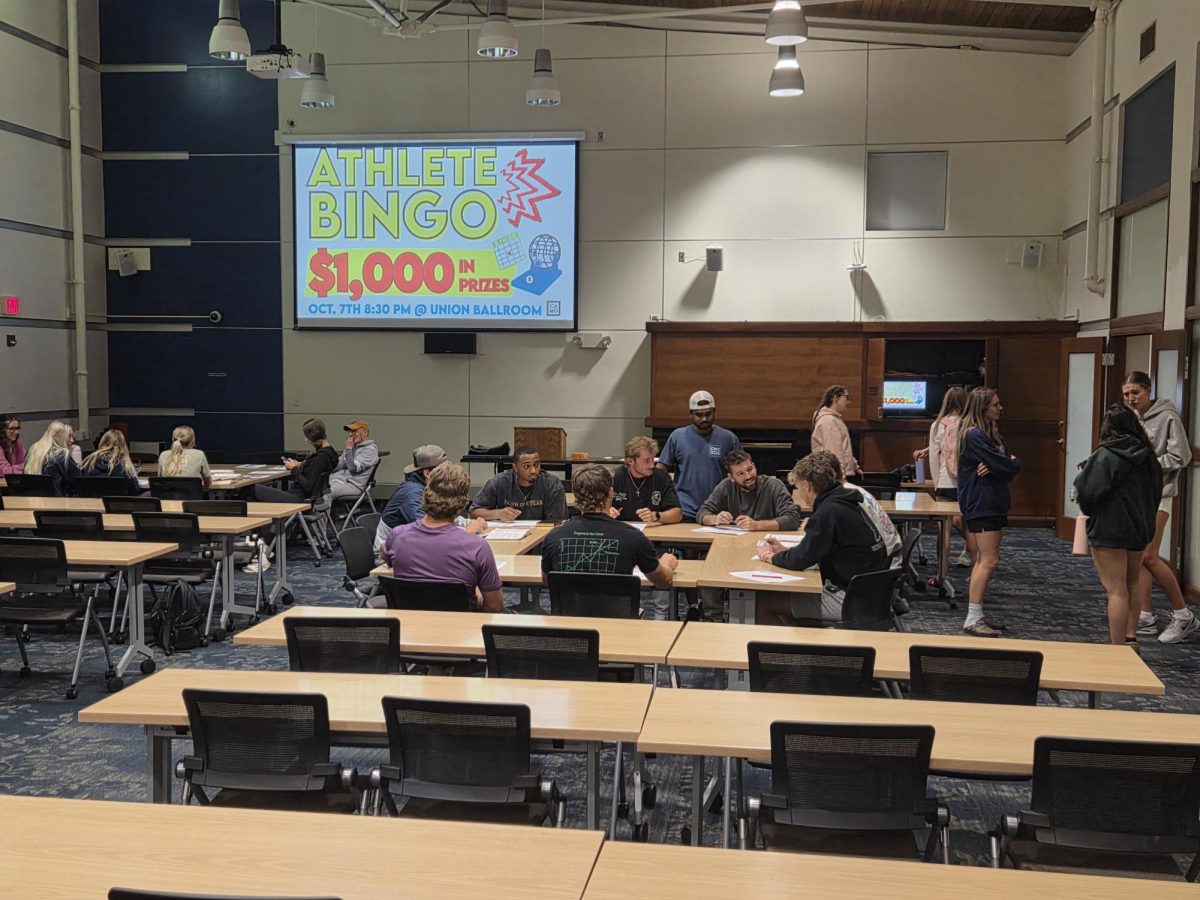UIS Speaker Series opened dialogue concerning the upcoming Illinois elections, in light of the recent national conventions, with a session titled Constitution and the 2012 Elections.
The session began with introductions of the speakers and the moderator. The discussion was moderated by WUIS News Director Sean Crawford, and the guest speakers were Amanda Vinicky, WUIS Statehouse Bureau Chief, and Dave McKinney, Chicago Sun-Times Bureau Chief.
Both speakers recently returned from covering the Republican and Democratic National Conventions, were they covered Illinois politicians in relation to the upcoming Illinois elections, and the presidential election. Audience members were encouraged to ask questions concerning the upcoming elections, or the conventions.
They discussed the importance of covering the national conventions, despite the growing cost to actually send reporters to the locations. Vinicky stated, “getting to know people, and seeing how they interact,” is important.
Both Vinicky and McKinney felt that coverage of the conventions was a great way to learn more about Illinois politicians, who they align themselves with, and even who is considering running for governor in the 2014 elections. They also mentioned that reporters get to see a different side of those running for Illinois office while at the conventions.
Vinicky shared that she was actually able to get an hour-long interview with Democratic Chairman and House Speaker Michael Madigan, during the convention. This was due to the fact that he had some free time at the conventions, and is normally very busy while the Illinois House is in session.
Discussion turned to the “Fire Madigan” campaign, and if the effort by Republicans would pay off. The state GOP actually handed out “Fire Madigan” buttons and revealed a “Fire Madigan” website at the RNC. Vinicky and McKinney commented that the Republicans feel the campaign is worth the effort and believe it will help them fill more seats with Republicans.
The speakers also explained that the delegates from Illinois and other states sit down to breakfasts, and discuss topics, including the gubernatorial election coming up in just a few years. The Republican Party delegates discussed who might be running, and what some of their goals will be.
The first audience question inquired as to how state delegates are picked for the national conventions. Vinicky explained that the process is very technical and was written in a document the size of small book ( which she gestured), but that when presidential candidates are chosen by their respective parties, delegates from each state are also chosen to represent those candidates.
For Illinois, the Democrats sent delegates for Obama. Originally the Republican Party delegates were split between several candidates, including 12 for Rick Santorum, and a number for Mitt Romney. As candidates drop out of the race, their delegates are “freed” as Vinicky put it and they are sent on behalf of the Republican endorsed candidate.
The discussion included changes and expectation for the Illinois elections in November.
One change that is factoring in to the upcoming Illinois elections is the redistricting of the state. Those currently holding office, and some who were planning to run for office, may no longer seek the seats, as many of the new districts contain a more diverse area than before. This new district map was created to favor Democrats in certain areas, according to the speakers, but by doing that, other districts favor the Republicans.
Vinicky said that this new arrangement for districts means that there may only be a dozen or so competitive races for district elections.
Along with the district change, Illinois has been seeing a change in votership among two of its three main areas. Illinois is split into Chicago, which votes heavily Democrat, the Suburbs, which used to vote largely Republican, and Downstate, which used to be a mixed voting area.
McKinney explained that over the last couple of decades the votership has changed to include a number of Democrats in the suburbs, which were called the “swing area” of the state. Downstate has also been voting more Republican.
How voting will go this year will have to be determined by the elections in the coming months.

